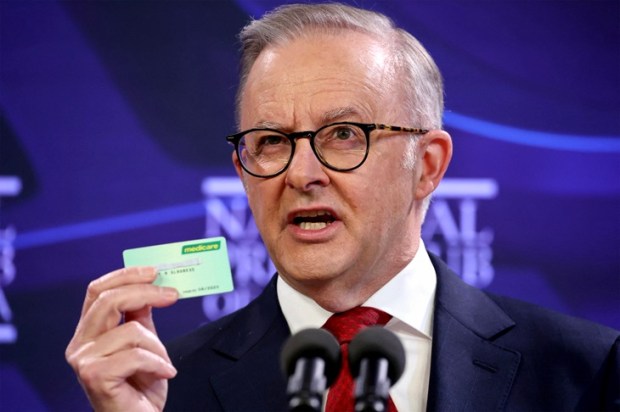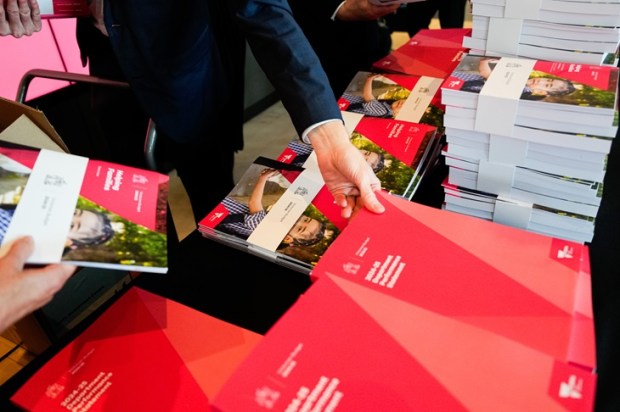The debate over Australia’s constitutional monarchy has been brought into the spotlight as we reflect on the success of King Charles and Queen Camilla’s Royal Tour of Australia. Their enthusiastic greeting by thousands of Australians from all backgrounds and ages sends a clear message that we are proud of our Sovereign, traditions, and history.
Before the Royal Tour, support for a Republic had fallen to a new low with only 33 per cent; a significant drop from the 45 per cent who supported change in the 1999 referendum. What’s more, a recent poll shows King Charles has a job approval rating at 50 per cent eclipsing that of Prime Minister Albanese at 44 per cent.
In today’s volatile political climate, it’s easy to dismiss the monarchy as an outdated institution, a relic of a bygone era. Yet, Australia’s constitutional monarchy stands as a bulwark of stability, tradition, and unity – a system that has not only endured but has thrived. It stands in stark contrast to the Republican movement whose support wanes, as it flounders in proposing an alternative form of government.
Constitutional monarchies around the world, including Australia, consistently provide stable, fair, and democratic governance. Our society is more prosperous than ever, healthcare is better, life expectancy longer, disposable incomes and free time greater. Australia’s political system has not been beset by crises or failures that would necessitate radical or revolutionary change. Despite this, the republican agenda persists, driven by broader sentiment, which elevates personality, performative politics, and individual virtue-signalling above history, tradition, and the common good.
The persistence of republicanism is not simply about the desire for an Australian-born head of state. The push is linked to a wider trend of rejecting traditional norms across various aspects of society – from language and gender to religion and free speech. Republicanism is a strain of political activism, in some sense a cousin of the campaigns we see attacking tradition and history. For many activists, the monarchy represents an outdated relic that must be cast aside to pave the way for a more progressive future. Yet, this sentiment is not always grounded in practical or historical realities but is often a reaction to an urge for change, regardless of the necessity or wisdom of such change.
A key driver behind republicanism is the very nature of modern politics and media. Politicians seek to appear active and responsive, journalists need conflict to generate news, and bureaucracies naturally expand their empire and influence. The monarchy, by its very nature, is a ‘do-nothing’ institution in the sense that it is designed to be stable and unchanging, providing a constant amidst the shifting tides of political fashions. Leaving something alone doesn’t make headlines. It doesn’t create jobs. It doesn’t require a committee to meet, a working group to be established. This paradoxically puts the monarchy under threat – not because of its failure, but because of its success in remaining unchanged and uncontroversial.
In quoting Margaret Thatcher, let us be reminded of the risks involved in replacing a stable monarchy with a political figurehead: ‘Those who imagine that a politician would make a better figurehead than a hereditary monarch might perhaps make the acquaintance of more politicians.’ You need only look to America or France to see that the political and volatile nature of a system without monarchy is tumultuous. Do we trust our politicians to elect an Australian President? How about Kevin Rudd or Malcolm Turnbull? What if someone with vast financial resources or celebrity status tries to buy the vote, what happens then?
The recent Voice referendum provides a lesson for defenders of constitutional monarchy. The proposal to constitutionally recognise an Indigenous advisory body was rejected, in part, because Australians did not accept the premise that the nation is inherently flawed or that such a radical amendment was needed to address systemic issues. Australians feel a confidence, optimism, and pride in their country, and when it is trashed by political opponents, they are motivated all the more to strongly defend it. This same sentiment can be harnessed to defend the constitutional monarchy against future republican pushes.
However, we must not be complacent. Supporters of constitutional monarchy cannot rely solely on past victories or the failures of their opponents. The recent and rather ironic appointment of openly republican figures to significant roles such as Governors and Governor-General is a reminder that the republican agenda is still very much alive. It is disingenuous of Labor Governments to propose these candidates for the roles – and indeed equally disingenuous of the candidates to accept them.
In defending the monarchy, we are not just preserving a system of governance but standing up for a vision of society that values gradual evolution over sudden revolution, continuity over chaos, and tradition over transient trends. We must reject the doom-laden, fear-mongering, self-hating rhetoric of those who would have us believe that our best days are behind us. Instead, let us approach the future with confidence, pride, and renewed optimism, and continue to cherish the constitutional monarchy that has been a steadfast guardian of Australia’s democracy.

























